Introduction:
The empowerment of women is crucial for the development of the country. Women empowerment is a process in which women challenge the existing norms and culture, to effectively promote their well-being. The Indian Constitution grants equality to women in all aspects. In this regard, the year 2001 was celebrated as the year of Women Empowerment.
The concept of self help groups (SHGs) introduced by the Ministry of Rural Development has taken its roots in nook and corner of the rural areas and in the semi-urban and urban areas, which help improve the living standards.
In India SHG represents a unique approach to financial intermediation .The approach combines access to low cost financial services with a process of self-management and development for the women who are SHG members. They are formed and supported usually by the NGOs and government agencies.
Therefore for the holistic empowerment of the woman to happen, social economic and political aspects impacting a woman’s life must converge effectively.
Hence, self help group is defined as a small economically homogeneous group of 15 or 20 rural poor voluntarily coming together to save small amounts regularly, deposited in a common fund to meet member emergency needs, to provide collateral-free loans decided by the group, discussions, social engagement, and economic engagement with one another.
We at Ascent provide 360-degree services encompassing Rural Marketing, Digital Marketing, Brand & marketing consulting services for brands to help them in reaching out to rural areas and connecting with their potential customers and partners.
Therefore through our secondary research we aimed at enlightening the core areas, challenges, expertise, etc. for few of the many SHG groups spread all over India in some or the other corner. Our endeavor is to tap these talented and resourceful women leading business so as to promote them and help cooperatives, private and public players in the market to identify & amplify their potential partners.
Given below are 50 SHG groups from different corners of the state PAN India that have performed brilliantly to make their impact on uplifting their economical standards by using their skills and available resources.
1. Amba Foundation

Location of the company: East Delhi
Amba Foundation is a non-governmental organisation that has been mobilising women for the battle against Coronavirus even before the lockdown was implemented. They are in contact with around 30 self-help organisations in slum clusters that are providing training to sew fabric masks using video conferencing. They’ve hired over 20 women to make reusable face masks out of fabric, which they’re distributing locally.
2 Ambe Mahila Mandal
Mrs. Kokilaben Goswami, a resident of Kherva village in Gujarat’s Mehsana district, has maintained a beauty salon because her husband’s salary was insufficient to meet her family’s demands. She met Krishi Vigyan Kendra Mehsana and took part in training programs on value addition in spices, such as turmeric and coriander, as well as marketing strategies.
Experts from Krishi Vigyan Kendra counseled her on forming a Self Help Group and encouraged seven women to start small businesses through it. Under the technical advice and collaboration of Krishi Vigyan Kendra, they formed a Self Help Group called “Ambe Mahila Mandal.” She started her business with Rs.5000 and purchased raw material kits from Ahmedabad wholesale market, such as soap, detergent powder, Vicks, Vaseline, and so on.They began small-scale production and sold the product to members of their Self Help Group and other nearby residents.
Self Help Group members got confidence to create and run a small business after the initial success. They thereafter bought materials from wholesale markets and sold them in their community and adjacent villages.
They also began preparing several spices such as chilli, turmeric, and coriander powder in response to customer demand. Krishi Vigyan Kendra assisted them in purchasing a packaging sealing equipment.
Self Help Group set up stalls and sold products at Krishi Vigyan Kendras National Seminar on Acid Lime, Women Day Celebration, and Krishi Mela, among other events. Customers were really satisfied with the products.Their current monthly income is Rs.10,000 per member, which has allowed them to improve their lifestyle.
3.ASRLM
Vermicomposting is a basic biotechnological composting process in which certain earthworm species are employed to convert organic waste into nutrient-rich fertilizer.It has been adopted by ASRLM as a good practice that may be implemented as a source of income for Self Help Groups. ASRLM, in collaboration with Krishi Vikash Kendras and MGNREGA, is working to expand organic fertilizer capacity and pave the path for the production and use of Vermicompost in the future

4 Aastha Welfare Society

Ramesh Nagar in Delhi has already sewed over 4000 face masks and is working on more to help municipal staff on duty during the lockdown. The masks were made according to the guidelines supplied to the trust by the NDMC commissioner, and they can be washed and reused for up to 6 months. Over 500 masks were recently donated to the education department by the group.
5 Baba Jaleswar Self Help Group
The ladies have jointly formed a Self Help Group called Baba Jaleswar by raising good quality fish breeds and selling them. They are presently bringing in more resources through the income generated with this business.
Women sell fish caught from the pond and this has helped them become financially independent. They no longer ask for money from their husbands and more importantly, are contributing to family income. The financial condition of women in her village has improved significantly after they started selling fish caught from the village pond in the local market. “We are now able to earn `3,000 to `5,000 a month.

Secretary of the Self Help Group , 38-year-old Anjali Sethi said the gathering was framed in 2018 under Rashtriya Krishi Vikash Yojana. They cleaned the town lake and began raising fish with specialized and monetary help from the State Fisheries Department. The individuals took responsibility for taking care of the fish each day, checking development, overseeing the arrival of fingerlings into the lake, and selling the fish, and so on.
Around 4,000 women as its members across the district have benefited from the Blue Revolution triggered by the Fisheries department. District Fisheries Officer, Kendrapara Mamata Mohapatra said the Fisheries department provides 60 per cent subsidy amounting to `90,000 to each Self Help Group for rearing fish.
6. “BHAI BHAUNI” Self Help Group , Dhenkanal,Odisha
The example of overcoming adversity with a disorderly area led to the establishment of “BHAI BHAUNI” Self Help Group which is a guide to individuals who have a place in an unorganised homely manner to help out for the cause and serve the purpose. The Govt. through different plans particularly under IWMP ( Integrated Watershed Management Program-utilized as dry spell moderation program in the dry season inclined regions) is investing amounts of hydro and labour energy to help the local area to improve the way of life.
They framed a Self Help Group for the sake of “BHAI BHAUNI Self Help Group ” that consisted of 10 female individuals The Self Help Group got first degree ranking and the “Spinning Fund” of L.H Component was dispensed by IWMP – IV Kishorenagar. An amount of Rs. 19,372/ – just had been given as Livelihood rotating reserve during the period of March, 2013. They used the asset in raising goats. They bought ten goats investing a sum of Rs.24,000.After several months, they acquired some benefits which they disseminated among themselves.
They have reimbursed their R.F credit from the benefits. They have recuperated an amount of Rs.19, 372.00 till date. They are likewise moving others to approach the arrangement of Self Help Groups. Their monetary position has improved extensively and they currently have an agreeable existence. In this way, because of the arrangement of the Self Help Group they can set aside some cash which they could spend at whatever point the need emerges.
7 .Chamunda Mahila Bachat Mandal
President: Smt. Bahrathi Jyotsana Nareshbhai
No. of SHG members: 15
Village: Kaneri , Taluka: Una, District: Junagarh, Gujarat
Kaneri is an interior village of Junagadh district where mostly people are engaged in agriculture and labour work at farms. The Scheduled caste population is working as farm labourers. Agriculture being seasonal in nature, farmers are not getting regular income throughout the year. KVK Junagarh extended its hand to help them. A total of 20 women were selected and formed a SHG. The SHG is named as “Chamunda Mahila Bachat Mandal”. The SHG opened an account in State Bank of India in Dolasa.
KVK had organized a group meeting to explain functions, importance and role of SHG. They opened their account in the bank and started their savings. KVK organized a skill oriented training programme on stitching and embroidery for the SHG members. Inspired from training, savings and credit facility through SHG,
Bahrathi Jyotsana Nareshbhai—a member of SHG came forward to start stitching and embroidery work. Her husband was unemployed. KVK helped her technically as well as in purchasing the machine. She is stitching all types of garments like sarris, blouse, godaddy, little frocks and all types of curtains, pillow covers, bags, shirts, etc.
In her village, she is only a tailor, hence, there is good scope for doing stitching work. Technical staff of KVK provided full support for improving their activity.
Now, she is able to generate Rs.200/day. She is very happy as she is getting handsome money and supporting her family. Today, confident and self-sufficient Jyotsana is a role model for many young women of her community. Other farm women and SHG members have shown an interest in doing some small-scale work to support their Families.
8. Chintan

Chintan is a city-based Self Help Group that supports rag-pickers and trash workers. At home, they manufacture masks out of discarded bedsheets and garments to deliver to rag picker communities. The NGO has already distributed over 1000 of these masks, with many more on the way.
9 Chamoli Self Help Group
Another success story is women self-help groups near Badrinath temple in Chamoli district, who have made a name for themselves by making Prasad using locally grown goods like Chaulai and selling it at the famed shrine. These women made a profit of Rs 10 lakh on a total income of Rs 18 lakh.Given the project’s success, the state government has pledged to assist women’s self-help groups in obtaining businesses near 625 temples around Uttarakhand.
Laxmi Rawat, a member of a women’s self-help organization in Paini, Chamoli, said the project has helped rural women not only find work but also improve their financial situation. Each of us made a profit of between Rs 10,000 and Rs 20,000, which she described as “a pretty excellent amount” considering the short period of time it took to complete the process.
10. Dehradun
Pushpa Chauhan, the Gram Pradhan of Ganeshpur village in Uttarkashi district, is one of the pioneers in bringing women together to work under one roof. The monthly profit may vary from Rs 1,000 to Rs 4,000, but women are learning stitching in addition to their farming abilities, with only a few hours of work every month.In Ganeshpur village, the first self-help group was founded under her direction in 2011. In 2018, there were a total of 15 such women’s organizations, each with 10 to 15 members.
The majority of the women in this community are members of some sort of self-help organization. Work has been distributed among the several groups.While some are engaged in stitching clothes for school students, others are involved in selling spices and food products.
11. Geeta Kurmi
Name: GEETA KURMI
Domicile: GELEKI
District: SIBSAGAR
Name of project Implementing Agency NIIT-YUVA JYOTI, DIBRUGARH
Trade of skill : ‘Customer Relation Management- Domestic Voice BPO domain’.

Gita Kurmi hails from a small town in Sivasagar’s Geleki district, where she aspires to create her own identity. She received her training in ‘Customer Relation Management- Domestic Voice BPO domain’ from M/S NIIT YuvaJyoti, Dibrugarh. A DDU-GKY Mobilization Camp was a turning point in her life when she learned about the free skill training offered through the DDU-GKY program. For a girl with limited resources and a weak financial situation, training in a PIA inder DDU-GKY not only enhanced her personality but also opened doors to job options. After graduation, Gita Kurmi was offered a job with Hinduja Global Services in Siliguri, where she started in May 2017 on a monthly salary of Rs. 7,200. She now earns a total of Rs. 17,893.
12. GULM Self Help Groups, women roped in to make masks, hand sanitizers
Lochan Sehra, secretary, lodging, “We connected with the administrations of ladies in 129 urban areas and towns of the state for making covers. GULM furnished them with great quality fabric and different materials needed in making covers. Our staff gathers the veils and these are then conveyed among those fighting the Covid-19 pandemic,” the authority said.
He said in under about fourteen days, around 1,000 ladies have made more than 13 lakh covers, of which more than 12 lakh have been conveyed in various urban communities and towns of the state. “It has assisted ladies with getting business while working from their homes during the lockdown time frame. With the interest for veils being high, every lady has had the option to acquire around Rs 300 per day by making covers,” the authority said.
The authority said that GULM hopes to deliver another 15 lakh veils in the following fortnight through Self Help Group ladies. “With more ladies approaching to create veils at home, we expect that another 15 lakh covers will be made in the following fortnight,” he said.

with the regions of Vellore, Tirupattur and Ranipet confronting appeal for face covers in the wake of the COVID-19 pandemic, the locale organization has requested that providers venture up supply.
The Vellore region organization has chosen to handover the work of assembling covers and hand sanitizers to self-improvement gatherings ( Self Help Group’s) and 18 ladies, who went through preparing in making covers during a week ago.
13.GRAM CHETNA KENDRA.
This SHG group is linked with banks and other financial institutions which thereby make a positive impact in attaining financial assistance for income generation activities. To make a positive impact they provided in-depth knowledge to the Self Help Group members. Various training sessions were organized to clear the concept of Self Help Group , how to manage, record keeping tactics, initiation of various income generation activities.
In addition, Self Help Group ensured that they were capable of managing funds, conducting effective meetings, and providing participation opportunities to every gender and social status.

They included things such as, special communication lessons for deaf and dumb children, teaching and learning materials to help youth who are impoverished to gain an education, special chairs, wheel chairs for those with mobility challenges, special education and regular health checkups, counseling of parents for behavior change, linkage with government facilities to disabled.
Linkages were made with the dairy cooperative society, veterinary department, insurance agencies and financial institutions to get various support. This positive approach resulted in

substantial increase in the income and nutritional intake of the children in the families and also improved tremendously.

14.Gurukrupa Self Help Group
Valsad—an ancestral overwhelmed region of Gujarat where Mango is a significant plant crop. Ancestral farmers develop mangos on the lines of homesteads or little bits of land. A large portion of them needed to strongly sell their produce at low cost. During 2007-08, Krishi Vigyan Kendra had coordinated a preparation on esteem expansion in mango for the farmers and farm ladies of Ambheti town.
Krishi Vigyan Kendra obtained help from Tribal Sub-Plan (TSP) in putting together trainings and gave packs to every member, i.e., plugging machines, bottles, plugs and so forth Every one of the learners were conferred abilities with respect to choice of natural products, tidiness, extraction of mash utilizing machines, bubbling of mash, amount of additive, fixing of bottle utilizing stopping machine, and so forth
This propelled the farm ladies to select as little endeavor for mango mash protection. They formed a Self Help Group named as “Gurukrupa Self Help Gathering”.
Today, every individual from the bunch is producing extra pay of Rs. 15000 to Rs. 20000 every year. Mrs. Kusumben Kalidas Patel—head of Self Help Group and expert mentor who alone fills in excess of 1000 jugs of mango mash each year.
These are sold in neighborhood markets just as provided in the metropolitan regions on request premise. She is one of the famous beneficial business people procuring Rs. 45000 to Rs. 55000 every year.
To foster towns alongside others, Maher is gradually and consistently moving into the insides of new towns where there is need.
Objectives:
- To sustain and promote Self Help Group ( Self Help Group ) formation in rural villages
- To promote education of children and youth in villages
- To strengthen the women through various trainings
- To link the Self Help Group’s with various banks and stakeholders
- To strengthen Panchayati Raj systems and promoting participation of women in governance
- To improve social and economic status of women
Activities:
- Conducting Baseline Survey & BPL survey
- Formation of Self Help Groups ( Self Help Groups)
- Training to maintain Self Help Group registers
- Linking with Nationalized Banks
- Providing information to avail various government schemes
- Conducting various skill development trainings
- Supporting Income Generating Programs (IGPs)
- Empowering women to take up various social issues
- Formation of pressure groups
- Himmotthan



47 Women Cooperatives or Federations have been founded by Himmotthan with the support of its partner organizations. These federations are also known as Self Reliant Cooperatives and are registered under the Self Reliant Cooperative Act of 2003. The Executive Committee of the Cooperatives is made up of two members from each Village Organization who are chosen on a rotating basis to represent them at the cluster federation.
These women’s cooperatives are responsible for promoting microfinance-based livelihood activities as representatives of Self Help Group s and VOs.In the majority of clusters, 47 Himmotthan-supported women cooperatives in Uttarakhand are engaged in a) Dairy, b) Common Facility Centers, and c) Agriculture Produces-based enterprises.
However, some SRCs have ventured into niche markets, such as handicrafts (wool-based items and Hawan Kits), tourism, dairy, and agriculture-based value-added products.Himmotthan Society, in collaboration with Tata Relief Committee (TRC) and Tata Trusts, has been closely connected with post-disaster aid work. Since the tragedy in June 2013, Himmotthan and TRC have provided urgent relief to over 200 communities.
16.Jai Ambe self-help group
Jai Ambe self-help group, every member contributes Rs 25 a week and the money can be given to any member who needs it.Hemlata Devi is a member of the Meena tribe, which is regarded as a scheduled tribe in Rajasthan. They gave small loans to the vast majority of their members, with huge loans going to barely one or two. Other benefits of self-help group membership, such as convergence activities and livelihood training, are needed, according to the authors.
17. Kathiravan and Malar SHG

Kathiravan and Malar SHGs were formed under TNCDW Ltd (PIU) Thanjavur in the year 2000, where the group initially had 24 members, which stands at 16 presently(8 each per group). These SHGs were availed economic assistance under SGSY, a sum of 7.5 Lakhs loan of a back-end subsidy of 2.5 lakhs. Through this fund, these SHGs started bath soap production activity in the year 2005. The loan’s interest rate was 11%, and was fully repaid in four years.
Further, along with village panchayat & DRCP, they reached out to SLI for a training program to improve the process of soap making, branding & marketing. They attempted to supply soaps to Government hostels, Cooperative stores to some extent at the early stage, but this could not be continued for many reasons.The raw materials are procured by ready-made sources sent by the companies in big containers. It contains the raw extracts in semi-liquid & liquid form of respective soap flavours like aloe vera gel, sandalwood, turmeric, meni amla, neem, azhagi manjal, rose, etc.
The production capacity of the unit per day is 17,500 soaps which consist of a total 7 batches per day, in which per batch makes up of 2500 soaps. Primarily, the quality of the soaps manufactured here is Grade-1 bath soap with 76% TFM. The higher the TFM, the more its moisturizing properties.
Members of the groups have worked for three companies:
Rohini Global Marketing in Chennai,
Vinobha Seva Sangam in Chinnalapatti, Didigul district,
Herbal Indu, with a total monthly output of 20,000 soaps.
18. Kenduasuli Self Help Group
Smt. Sibani Basket has been a successful Self Help Group leader for many years. She is 30 years old and comes from a Kenduasuli BPL farmer family. Her schooling is at the high school level. Since the year 2000, she has been involved with the SBKrishi Vigyan Kendra. She and eight other farm women have received instruction in low-cost nutrition recipes, kitchen gardening, and manufacturing Sal plates, among other topics.In the year 2000, under the leadership of Sibani Basket and with the support of SBKrishi Vigyan Kendra, one Self Help Group was founded and constituted in partnership with the Panchayat.
Other farm women in the community were inspired by the Self Help Group , and as a result, four Self Help Groups were founded under Sibani Baskey’s leadership and with the help of the SBKrishi Vigyan Kendra Home Sc. Section.. Kenduasuli village currently has 5 Self Help Groups of men and women. As a single business development, the Self Help Group groups are rearing goats, pigs, and heifers, as well as agricultural laborers.
19. Kudumbashree-Kerala women’s Self Help Group
In 1997, The Kerala government established a self-help organization named Kudumbashree, which means “family prosperity” in Malayalam, with the goals of women empowerment and poverty elimination. It now has 43 lakh members, making it one of the world’s largest women’s organizations. Members of the organisation recently cooked and served polling station workers in Kerala’s capital, Thiruvananthapuram on 23 April.
The group adhered to the Green Protocol by only utilizing steel utensils.Customers are devoted to the group because of the high quality of their cuisine and service.One such customer says, “We visit on a frequent basis. We’ll be served comfort food. This is the same stuff we eat at home. As a result, we chose this location [sic]”; while another commented, “I favor two things: flavor and quality.” And, you know, the curries they serve are incredible. I really like it. And the ladies, the way they deal with [customers] and serve the meal, it’s also limitless.”With this endeavour, the group saw tremendous success, having cumulatively generated Rs 1.27 crores across two days. Kudumbashree is now in the process of signing pacts with 19 states to help them set up similar programmes.

20.Lakshmi Mahila Self Help Group
This is the narrative of Lakshmi Sakhi Mandal, a pioneer women’s Self Help Group that made a significant contribution to the former state-sponsored Sakhi Mandal Scheme. The Lakshmi Sakhi Mandal is made up of 12 people from impoverished areas. Adversity pulled them together, and two strong-willed women opened a shop at the Gramhaat in Dhamli Village’s tourist destination.The shop’s capital was raised from the group’s monthly savings, which began with a Rs.100/- per member donation.
Artefacts made of China Clay (Chini mitti), handmade goods, cutlery, and other items are sold in the shop.These items are sourced from nearby towns’ viz. Rajkot, Surendranagar & Junagadh. While a few members work at the shop, the others remain associated with daily wage work and agriculture activities.
The members of the Lakshmi Mahila Self Help Group have now become pillars for the rest of their family’s growth and sustainability. More than 4400 women in Bhanvad Taluka are members of Self Help Group s, who have saved Rs. 80 lakhs and completed an internal landing worth roughly Rs. 50 lakhs, proving to be a pillar of their families.


21.. Mahila Housing Sewa Trust

Mahila Housing Sewa Trust is another NGO that is leading the fight against Coronavirus in Northwest Delhi by stitching masks for underprivileged colonies. The masks are distributed via local vendors to whom they are sold for nominal costs. The masks are made by women on stitching machines and are being distributed in areas like Sadva Graha, Sunder Nagri and Nand Nagri.
22Mahila Housing Sewa Trust
Another NGO in Northwest Delhi that is leading the fight against Coronavirus by sewing masks for poorer communities. The masks are supplied through local sellers who sell them for a small fee. The masks are stitched together by women and distributed in communities such as Sadva Graha, Sunder Nagri, and Nand Nagri.
23.Mata Sundari Self Help Group

Mata Sundari Self Help Group members in Rameswarpur village are currently preparing modern clothing and selling it in local marketplaces. They bought two embroidery machines with the money they saved and used them to prepare embroidered clothing. They also make candles and agarbattis, which they sell at a nearby market.
The district administration of Udham Singh Nagar, through IMPART, awarded a grant of Rs 1.5 lakh for the construction of one hall and one store room in recognition of the village’s promising entrepreneurship. The hall was built in the Gurudwara grounds with the approval of the entire village and a gift of 3.00 lakhs from the village population.
The Swajal Project has contributed Rs 15000 towards the establishment of a revolving fund. The bank has given the women a cash credit limit. The women of Rameswarpur village are putting their spare time to good use by working and earning money. They have served as an example to all other Self Help Groups in the Udham Singh Nagar district.
24 Manaksar– Self Help Group
Manaksar is a village in Hanumangarh district where mostly women are housewives. They jointly took a decision to support their families through an income generating activity. They were more interested in stitching work at their doorsteps. They extended their desire to Krishi Vigyan Kendra experts. Krishi Vigyan Kendra person advised them to form a Self Help Group . The group was named as Manaksar Self Help Group which consisted of 10 members. Experts of Krishi Vigyan Kendra conducted vocational training on stitching to make them self reliant. Self Help Group members also opened an account in the bank and started group activities like saving, inter-loaning, etc.
These women purchased quality materials like thread, needle, buttons, hooks, cloth, etc. from the local market so that they can prepare good quality products. Self Help Group members are earning Rs.5000 to 6000 per month. Women of the area are showing keen interest in stitching work after the success of Manaksar Self Help Group .
The demand for their products is increasing in nearby areas. Self Help Group members are happy with earnings from this business. Now, the women are supporting their families economically.
25.Mahaveer Women Self Help Group
Laxmipriya Mallick, the secretary Mahaveer Women Self Help Group at Entalapur town in Garadpur block also has profited by pisciculture.
She said the monetary state of ladies in her town has improved essentially after they began selling fish obtained from the town lake in the neighborhood market. “We are presently ready to acquire 3,000 to 5,000 every month,” she said.
26.Maa Budhi Mangala Women Self Help Group
Pisciculture has given 30-year-old Jayanti Rout of Basantapur town in Rajnagar block another significance throughout everyday life. An individual from Maa Budhi Mangala Women Self Help Group , she is not, at this point, simply a helpless farmer’s better half. Jayanti presently acquires around Rs 3,000 to Rs 5,000 every month.
Upwards of 389 Self Help Groups with around 4,000 ladies as its individuals across the area have profited by the Blue Revolution set off by the Fisheries office. Region Fisheries Officer, Kendrapara Mamata Mohapatra said the Fisheries office gives 60% appropriation adding up to 90,000 to each Self Help Group for raising fish.
27Manaksar Self Help Group
President: Smt. Parmjeet Kaur
No. of Self Help Group Members: 10
Village: Manaksar, Taluka: Sangaria, District: Hanumangarh, Rajasthan Nanaksar is a village in
Hanumangarh district where mostly women are housewives. They jointly took a decision to support their families through an income generating activity. They were more interested in stitching work at their doorsteps. They Extended their desire to Krishi Vigyan Kendra experts. Krishi Vigyan Kendra person advised them to form a Self Help Group .
The group was named as Manaksar Self Help Group which consisted of 10 members. Experts of Krishi Vigyan Kendra conducted vocational training on stitching to make them self reliant. Self Help Group members also opened an account in the bank and started groups activities like saving, inter-loaning, etc. These women purchased quality materials like thread,needle, buttons, hooks, cloth, etc. from the local market so that they can prepare good quality products.
Self Help Group members are earning Rs.5000 to 6000 per month. Farm women of the area are showing keen interest in stitching work after the success of Manaksar Self Help Group .The demand for their products is increasing in nearby areas. Self Help Group members are happy with earnings from this business. Now, the women are supporting their families economically.
28 Mahalir Mandram Poongarun – III Self-Help Groups in Yelagiri Hills, Tamil Nadu
One of the Self Help Groups under the Social Education Movement (SEM) is Mahalir Mandran Poongarun – III. The gathering used to gather blossoms known as ‘shenbaga crap’, which they offered to wholesalers at Rs. 0.50. With the benefits they received, they extended it to agriculture and developed blossoms like roses and ‘chendu malli’.
The Self Help Group presently offers half of its produce to wholesalers while selling the rest straightforwardly in the city at Re. 1 procuring higher benefits.Perceiving the endeavors of the Self Help Group s around there, the region organization likewise chose to rent the Poonga Run with Boating, container manufacturing, cultivation garden, upkeep of latrines, shop to show and offer Self Help Group items to the tourist gathering so as to likewise advance the travel industry around there. The drive has improved the existence of the ladies of Yelagiri and added to the decrease of poverty around there.
29. Maa Manikeswari Self Help Group
The SHG is located in a remote rural village in the Kalahandi district of Odisha, India. Vegetable cultivation and vending is the primary source of livelihood for most of the members of this group.
Members of the SHG produce vegetables like brinjal (eggplant), cauliflower, carrots, cabbage, chilies, cucumbers, papaya, lady’s finger (okra), onions, etc. on the farm. They sell products to the traders from the nearest town who come to take vegetables from the farm directly. The women group says they earn a minimum of 5,000 INR per head per month from this business. This is insufficient to meet the day-to-day expenses of her family as well as the farm expenses.

Satyabhama, the managerial head of the SHG, wants to expand the business by taking a loan from People’s Forum. She will use the present loan to buy fertilizer and farm inputs such as seeds and pesticides for her farm. She expects a good return from her business by expanding her cultivation.
30. NARI SHAKTI Self Help Group — PUNJAB
The Nari shakti Self Help Group was established in 2013 out of the group of NGO PAHAL with a motive to promote the entrepreneurial activity of candle making and pickle formation with mango chutney. The loan for Self Help Group was taken for the amount of Rs 40,000. Annually as it was all seasonanal based work. The installments were to be paid regularly and the marketing was done by the member ladies and meeting non attending was charged a fine of Rs 10 per member to maintain the regulation and balance with seriousness of work.
Also they got engaged in activities like making clothes, bag making, nursery, dairy, goatery, bangle shop, pulses or dal mills, leaflet making, organic products like spice powders and hand-pounded rice Hatsadi Tandul which are always in great demand. Women whole-heartedly participated in these programs, alongwith coming up with new ideas. They started participating in exhibitions like Bhimthadi, Dakkhan Yatra etc. held in major cities to display and sell their products.
31 PRAGATI Self Help Group PUNE
Pranali has a place with a helpless family foundation. She saw her family battling to get by on a solitary pay. She was offered at 19 years old since she had set out to cherish. Pranali longed to accomplish such a great deal more throughout everyday life – she was resolved to turn into a free lady with her own character as well as being a spouse and mother to two youngsters.

Amidst her trial, she came to think about Pragati Foundation’s adornments preparing programs through local area pioneers. At first, she was somewhat reluctant and terrified of being essential for the undertaking. How was she to realize that the preparation she took as an interest could truly turn into a distinct advantage in her life!


Being a thoughtful person, she discovered it was truly hard to communicate with different women in the gathering. Her coach says,” Pranali was a calm, modest young lady when she went along with; it was hard for me to understand in the event that she even comprehended the complexities of the course. However, she ensured she was accustomed to class, and in the end I could see the measure of getting a handle on the power she had in her. She was the simple one to arise as the most splendid in her cluster.”
Pranali understood her potential when the preparation of 3 months had reached a conclusion. She had dominated in her preparation. She gladly says,” I had not just figured out how to talk with others yet I had additionally become a sure lady. It caused me to outgrow my feeling of inadequacy and have my very own remains. This was conceivable due to the Pragati establishment and their A2A (Awakening to Abundance) program. This was each of the three years back. Presently Pranali has developed herself to be a mentor and she directs her own gems preparing program under Pragati establishment.
At present a piece of the Laavanya Self Help Group ( Self Help Group ), she says it has shown her the worth of cooperation and coordination. She desires to extend their market to expand their deals and contact more individuals. She searches forward for a method of customary deals and furthermore desires to send out her gems.
32.PHD FAMILY WELFARE FOUNDATION PHD
It is a separate bfarm of the PHD Chamber of Commerce and Industry (PHDCCI) dedicated to fulfilling the chamber’s social duties. PHDFWF has been effectively implementing family welfare projects in India’s northern states for over 34 years. It is a group responsible for delivering CSR programs and providing CSR advice to businesses, public sector organizations, embassies, and other organizations.
It aims to improve the lives of poor people by establishing a platform for collaboration between communities and organizations. This long-term relationship is used to address social concerns in the slum and resettlement areas by implementing the organizations’ CSR initiatives. It is currently executing its project in the states of Uttar Pradesh, Haryana, Assam, Odisha, Himachal Pradesh, Rajasthan, Uttarakhand, Punjab, and Delhi NCR region




33. Pragati Foundations’– Self Help Group ( Self Help Group ) “Lavanya”
Pranali belongs to a poor family background. She saw her family fighting to survive on a single income. She was married off at the age of 19 because she had dared to love. Pranali yearned to do so much more in life – she was determined to become an independent woman with her own identity in addition to being a wife and mother to two children.
In the midst of her ordeal, she came to know about Pragati Foundation’s jewelry training program through community leaders. Initially, she was a bit hesitant and scared of being part of the project. How was she to know that the training she took as a hobby could really become a game changer in her life!


Pranali realized her potential when the training of 3 months had come to an end. She had excelled in her training. This was all three years back. Now Pranali has grown herself to be a trainer and she conducts her own jewelry training program under Pragati foundation. Currently part of the Laavanya Self Help Group ( Self Help Group ), she says it has taught her the value of teamwork and coordination. She hopes to expand their market so as to increase their sales and reach more people. She looks forward to a mode of regular sales and also hopes to export her jewelry.
34. Rupjyoti Self Help Group , Doligaon
Rupjyoti Self Help Group is a women’s organisation in the Central Jorhat Development Block of Doligaon. With a membership of twenty women, the organisation was founded in 2006. The experience of this Self Help Group demonstrates how women may organize themselves to overcome poverty and despair using cooperative principles.Self-help groups are primarily formed to better the socioeconomic position of underprivileged rural women, particularly to enhance their income. The women were educated on the process of group formation as well as the benefits that would result from it.
All of the members agreed to hold a Self Help Group meeting twice a month and that each member would make a monthly deposit of INR30. Contributions would be mobilized and money placed in the bank in the first week of each month at the monthly meeting, allowing members of the groups to take out loans as needed.
The group’s members are largely involved in weaving. They weave famosas, makhalla sadars, woollen shawls, tangalis (for bohag bihu), and other Assamese costumes on their own handlooms. As a result, they tailor, sew, and embroider items such as pillow covers, handkerchiefs, and tablecloths. They also produce some of the ornamented products to their requirements.
35 RSETI UBI Golaghat:
Mrs. Monimala Bora Mohan is a housewife from Mohmaiki Ahu Gaon, Bokakhat, who assists her husband with traditional farming. Her husband works in a Tea Garden, therefore he is familiar with the basics of plantation and farming. They launched a Poultry Farm with 200 chicks to supplement their household income, but they lost money due to a lack of information about preventive measures.When she enrolled in a Poultry Farming course at RSETI UBI Golaghat, RSETI intervention became a turning point in their life.
The training course covered the need of taking measures at every step of the poultry farming process, the best quality varieties, market potentiality, and the economics of the poultry farming business, all of which are necessary for business achievement
.
Net income before training – 5000/-
Net income after training 20,000/-

Mrs. Monimala Bora Mohan extended her farm to 1300 chicks in November 2016 after completing the training and having a good understanding of the Dos and Don’ts of Poultry Farming, with the goal of selling at the Bihu Markets in January 2017. When sold to wholesale and retail markets at Rs 110/- and Rs 200/-, she lost just 80 chicks and the remaining 1220 grew up to be 2.8 kg apiece.
36. RSETI SBI Chirang:
Babul Debnath is from a low-income family in Basugaon, Bhatapara. Due to his bad financial situation, he was unable to continue his official education beyond Class X, thereby closing doors to job options. The only way he could provide for his family was to start his own business. Some of his acquaintances informed him about RSETI and suggested that he undertake Free training under SBI-RSETI, Chirang. He enrolled himself for training in Dairy Farming and underwent 10 days with full interest and dedication.

Net income before training – NIL
Net income after training 70,000/-
He asked for a loan of Rs.225000/- from AGVB, Basugaon Bfarm to start a dairy company after completing training in Dairy Farming under SBI-RSETI. Milk Cows (Jersey) is his business, and he supplies milk to the area’s tea booths as well as his neighbors. Initially, he struggled with finances, but with hard work and perseverance, he eventually overcame all of them. He presently supplies 30 to 40 litres of milk every day in the market earning Rs. 60,000/- to 70,000 every month approximately.
37.RUPA GOSWAMI-Manasha Self Help Group
Rupa Goswami, a member of the Manasha Self Help Group in Lakhimpur’s Karuna Bhari Block, developed a small dairy unit in her home and joined the ASRLM- Self Help Group fold.
Rupa, like any other village woman, could not see beyond the four walls of her home until she joined Manasha Self Help Group . She acquired a variety of training after joining the Self Help Group , which enabled her to contribute to the family’s income.
Self Help Group members were able to donate a significant sum to the Self Help Group account through regular saving and interleading. Rupa was able to obtain a loan of Rs. 30,000/- from the Self Help Group after submitting a Micro Credit Plan (MCP) (Jersey). She was able to repay her loan while also saving money by selling the milk. She currently owns 7 dairy cows (Jersey) from which she is able to produce 40 litres of milk per day. After incurring all the expenses related to her 7 cattle, Rupa manages to make an income of Rs. Rs.29,000/- to Rs. 31,000/- per month.


38. SEWA in Almora

The SEWA Ekta Swahyata Sahakarita Cooperative
With the help of SEWA Bharat, 125 women farmers established their own SEWA Ekta Swahyata Sahakarita producer’s cooperative in June 2013. Since then, the cooperative has grown throughout Almora, and it is now led by and made up of women farmers who have seized control of their economic activities. Farmers have recently increased output to high-value crops such as quinoa and tulsi after receiving training.Employs 680 women farmers across 27 villages350 shareholders in the companyProducts: chili, turmeric, coriander, quinoa, tulsi, and brahmin
Trainings and skill development:
- Agricultural trainings: Organic certification, manure production, water tank installation
- Herbal Research and Development Institute led training on tulsi and quinoa production
- Microfinance and micro-enterprise
- Training of Community Trainers
- Value-addition through spice grinding and packaging
39 . Sadhu Deepthi Self Help Group

Sadhu Deepthi is the name of a Self Help Group in Kakkayam village, Kozhikode district, with roughly 20 farm women (most of them are farmers) as members. The majority of these women have no formal education and property holdings ranging from 3 cents to 4 acres.
The group was initially tied to a co-operative bank in order to get loans to begin various income-generating businesses, and the loans are returned from the profits generated by the group’s many businesses.
Mrs. Daisy Francis, the group’s Joint Convener, states, “Many of us had taken out loans and have entirely returned the sum from the cash earned by our efforts.” Currently, each member receives a part of Rs.5,000 to Rs.9,000 every month.
To suit their requirements, all of the members grow vegetables organically, utilising vermicompost created by them. Approximately 10 female members established dairy units with two to seven cows. Through the selling of milk to a neighbouring milk co-operative society, each member earns a net profit of Rs.100-Rs.140 per day per cow. They also make Rs.2000 to Rs.14,000 per year from the selling of cow manure. Some of them generate their income by selling calves for Rs.5,000-Rs.6,000. Four members established a goatary unit, each with 3-7 Tellicherry breed goats, which generates an annual revenue ranging from Rs.1,000 to Rs.9,000 for each lady.
Furthermore, the goat’s faeces provides them with an additional revenue of Rs 2,400 to Rs 5,000 every year. According to Mrs. Sainaba, a member, “the spending on each goat is roughly Rs.100 per year on medications, and we do not spend any additional money on feed, as adequate green fodder is locally available.”
Every member of the organisation launched a poultry unit with an initial supply of 280 chicks and raised the number of birds to 2,000 in the same year. The ladies may make up to Rs.11,000 a day by selling eggs and meat at the local market.
Within a year, two ladies began growing ornamental fish and sold them for Rs.4,800.
The Krishi Vigyan Kendra has also been honoured and classified as “outstanding” by the NABARD for its works promoting farmer organisations in the state of Kerala.
40 SETH MADAN LAL PALRIWALA FOUNDATION
At the Centre, 270 students are receiving training in tailoring, beauty culture, and English speaking. On a regular basis, awareness-raising programs on a variety of social topics are held for the neighboring community. These awareness-raising activities benefited around 430 girls and women in the community.




With financial support from the Seth Madanlall Palriwala Foundation, the Foundation is giving nursing assistant training to girls and women living in the Vinodpuri resettlement area and the Sangam Vihar slums. On the 5th of November 2014, the Foundation, in collaboration with SAF, held a program at the PHD House to distribute certificates to nursing trainees who had completed their courses.
The six-month program includes four months of theoretical and two months of hands-on training in various hospitals. Trainees can work in a variety of health care settings after completing their course, including adult day care facilities, hospitals, physician’s offices, nursing homes, and private residences. The project’s goal is to change the way they think about their economic activities so that they can become self-sufficient.
41 SANDHYA BHAKTA–Building Entrepreneurship –
Sandhya is a member of the ABHA Self Help Group , which obtained a Revolving Fund (RF), a Community Investment Fund (CIF), and a bank credit of Rs. 1,50,000. Since its inception in 2012, the Self Help Group has saved more than Rs. 40000/-. Sandhya obtained a Rs. 60,000/- loan from the Self Help Group in order to establish the extra Bakery Unit.She also put money into purchasing the necessary materials. Her bakery items are all in high demand; all she needed to do was expand supply, which she could only do if she invested in her unit, purchased more ingredients, and hired more staff.
The financing aided her in this endeavor, and she was eventually able to transition from the retail to wholesale market.She has also hired four people to work in her bakery, paying them Rs. 3000 per month. As a result, she became a little businesswoman making an income of Rs. 32000/- per month in her village, alongwith motivating other women in her community.

42. Sehri Sahbhagita Manch – estd under (Deendayal Antyodaya Yojana-)
The Deendayal Antyodaya Yojana-National Urban Livelihood Mission (Day-NULM) would be built on the premise to mobilise the urban poor families to create their own institutions for a critical investment in a successful and long-term poverty reduction programme. These poor institutions would collaborate with local governments, public service providers, banks, corporate sectors, and other mainstream organisations to offer social and economic services to the poor.
NULM envisions mobilising urban poor families into three tiers:
- Self Help Groups ( Self Help Group s) at the grass-roots level
- Slum/ward-level Area Level Federations (ALFs).
- At the city level, there are City Level Federations (CLFs).
Self Help Group Participation-
- Under NULM, urban poor Self-Help Groups will be developed.
- Self Help Groups are groups of ten to twenty women or men.
- Non-poor people may be admitted as members of Self Help Groups for certain circumstances.
- These organisations do not need to be registered.
Disabled men’s Self Help Groups will be authorised.: An Area level federation (ALF) is a Self Help Group organisation made up of delegates from all member Self Help Groups. Self Help Group federation is necessary for dealing with broader concerns such as bank linkage, intergroup loans, talks with higher level entities, and having more bargaining power over Self Help Group rights and privileges.
ALFs (Area Level Federations) will join forces to establish a City Level Federation. Each city has its own CLF. CLFs should be incorporated as societies. Based on their size and population, larger cities may have more than one CLF. CLFs are intended to collaborate with ALFs Self Help Group s members.
- To reflect the urban poor’s needs at many levels.
- Advocacy with ULBs and the state government for pro-poor planning, master plans, vendor planning, and so on.
To make banking services available to member ALFs and Self Help Groups.
- Support for the creation of a new group.
- Determine the training and capacity-building requirements of the ALF members.
- Assist in the marketing of Self Help Group produce/products.
43 Sangthan Self Help Group
Churu district is a part of Thar desert with uncertain and inadequate rainfall. The extreme temperature in winter and summer ranges from –4°C to 50°C, respectively. Economy of farm families is based on rain-fed farming of Kharif where Bholusar village is of no exception. There was no other alternate source of income for the livelihoods of rural poor. Thus they have to either migrate towards cities for employment or to remain unemployed for 7-8 months of the year. Consequently, their socio-economic status remains poor. Keeping this in view, KVK formed a SHG named “Sangthan” on 22nd January, 2011 consisting of 10 poor farm women belonging to deprived sections of the society. To strengthen the SHG members and make them economically independent, KVK organized a long duration skill oriented training on “Tailoring” at village level in collaboration with RMoL. A training kit was provided to each participant consisting of sewing machine, scissors, inch tape and other related items so that they could start their business without any hindrance.
On an average, each SHG member earned a net profit of Rs. 2322 per month. The average monthly income ranged between Rs. 1350 to Rs. 4000. SHG members are very glad to become independent. Now, SHG Sangthan has become an ideal example for the poor, illiterate, socially deprived sections of the society. SHG has proved a well known proverb i.e., “Unity is Strength” as the name indicates.
44 Suravi Dairy Farm’
15 women from BPL families were united to form a Self Help Group namely ‘Women Development Society’ dated 13.7.98 World Vision, a leading NGO of Ranapur Block promoted the Self Help Group . The group was graded and passed Gr. I and Gr. Ii test as per the norms and regulation of. DRDA, Nayagarh sanctioned a revolving Fund Rs.10,000/- to this Self Help Group . The members were interested in cow rearing. The group was selected under SGSY on 21.9.2000.
A project report was prepared for Rs.3,64,000/- for the common dairy unit. The loan proposal was sponsored to PGB, Darpanarayanpur by B,D.O. Ranapur. It was sanctioned and money was disbursed to them for construction of the shed. They constructed a common shed within the stipulated period. Then working capital was disbursed and 15 no. milk cows were procured from Andhra Pradesh. At present they are producing 90 liters of milk per day and selling to Puri Milk Union (PUMUL). They are taking ½ liter milk to their home daily.
The members are very much happy with their job. They have taken 3 acre land adjacent to the farm and are doing fodder cultivation. They are getting Rs.400/- each in a month by 6 day’s labour in a month. Now the women have become earning members of their family.
45. Self Help Group women make 13 lakh masks in Gujarat
Women of self improvement gatherings ( Self Help Group s) across the state have made more than 13 lakh covers during the lockdown, of which more than 12 lakh have effectively been circulated among cops, sterilization laborers and other cutting edge staff associated with engaging the Covid-19 pandemic.
Indeed, even as methods for occupation of ladies of Self Help Groups were influenced on account of the lockdown, the Gujarat Urban Livelihood Mission (GU LM) drew in the administrations of metropolitan Self Help Groups to make custom made covers. GU LM has been gathering these covers and disseminating them among bleeding edge staff who are attempting to control spread of the pandemic.

46 Sfurti Mahila Mandal
In the region of Pune, a little Mahila Mandal named Sfurti Mahila Mandal began with the purpose of running after ladies strengthening and climate has today happened into one of the incredible examples of overcoming adversity of Self Help Groups. The Mahila Mandal saw tremendous potential in the possibility of Self Help Groups, which were working casually however were quite dynamic in leading exercises and assembling local areas.


Because of the excitement of its individuals and partners, the Mahila Mandal began an association called SMILE (Savitri Marketing Institute for Ladies Empowerment) to center the energies of every one of these Self Help Groups under 1 proper unit. Under the initiative of the then Mayor, it began as a Joint Venture between Pune Municipal Corporation and the association in 1998. The association began with 15 ladies Self Help Groups under it.
They chose to manufacture handbags, handiworks which were set up by ladies and debilitated. It manufactured selling toys, sacks made utilizing block painting, paper machines, weaving and so on. The companions of SMILE – including common society associations, specialists and givers – acquired the vital plan and quality concentration to make the items attractive.
Presently SMILE has 3 advertising outlets in Pune. The public authority of Maharashtra has additionally given a notice expressing that all towns and urban communities in Maharashtra should start such advertising exercises.
47. Sri Ram Self Help Group
The ladies of Sangaria town formed a Self Help Group to educate with respect to Krishi Vigyan Kendra specialists. They named it as “Shri Ram Self Help Group ” which has 12 individuals.
Specialists guided them with respect to the working of Self Help Group , looking after the register, saving, opening ledger system,mid-advancing, and so on. Krishi Vigyan Kendra coordinated professional preparation on toy making and several other independent works for the ladies.
The Self Help Group bought crude materials of the best quality for example- fabrics, fiber, pots, colors, wooden materials, gum, and so forth. They gathered fabricated toys on request from customers.Each Self Help Group part is acquiring around Rs. 22000 every year. This gathering of funds became an ideal gathering for rousing different ladies of the close by regions.
48. SEWA BHARAT
SEWA Bharat has mobilized 24,200 unorganized women workers in Uttarakhand’s Almora, Dehradun, Mussoorie, and Rudraprayag districts since 2006. SEWA Uttarakhand is a group of women from the hospitality business, farmers, vendors, and craftsmen who work together to develop their villages economically and socially.It began in 2007. SEWA currently has 1,570 members that are not formal members. SEWA’s organizing and advocacy is a platform for informal women workers to bring their concerns to the attention of the government and the media. SEWA assists the Government of India in understanding, delivering, and addressing the needs of women in the informal sector through local and national meetings, public rallies, and campaigns.They have successfully advocated local government for cleaner public restrooms in 2013, promoting communities with healthier and safer environments along with being connected to government schemes for livelihood development, social security, and healthcare.

Livelihood linkages: 46 SEWA youth were connected to government training programs
RSBY scheme: 482 women registered for health insurance
45 Self Help Group s with 433 women members
Total savings of Rs. 18,40,940
Total loans worth Rs. 29,95,674

49. Shivshakti Self Help Group
The tribal villagers of Kalakava village were economically poor due to the marginal land holdings. Farm women are mostly engaged as daily wage workers in the farm, which is available only in a particular season. Therefore, these tribal women were facing many difficulties for smooth maintenance of their family. The women approachedKrishi Vigyan Kendra, Vyara and explained about the economic condition.


As a result, Krishi Vigyan Kendra organized a vocational training programme on Masala (Spice) preparation in February, 2011. Kalakavavillage is one of the adopted villages of Krishi Vigyan Kendra, Vyara where Shivshakti Self Help Group is an activegroup promoted by Krishi Vigyan Kendra. Total 19 tribal women are members of this Self Help Group .
Self Help Group formation binds the women together and develops the habit of saving among them.After completion of training, total 10 members of Self Help Group started Masala udyog. For Financial help, Bank of Baroda, Kalakava sanctioned a loan of Rs. 50,000 for this vacation. Self Help Group with the help of bank loan and internal lending had purchased equipment like chakki, pulverizer, mixer, weighing balance, sealing machine, sieve, raw material, plastic bags etc.
Through masala business, Shivshakti Self Help Group is getting an income of Rs. 14,000 toRs. 16,000 per month. They earned more than Rs. 1,50,000 from January 2012 to March2013. At present, total savings of Self Help Group is about Rs. 75,920. Krishi Vigyan Kendra had arranged visits to various Self Help Groups in the region, organized agricultural fairs, tribal fairs, etc., to promote the sale of their products.

Krishi Vigyan Kendra provided help for marketing of products in local mandi. Krishi Vigyan Kendrahad also given technical brands to their products. As a result, the social status of the tribal women had risen. Now, Shivshakti Self Help Group has become an ideal centre to guide other Self Help Group
50. Savan Mata Nihal SHG
Sushri Sunita Bilwal of Savan Mata SHG of village Tundikheda of district Sheopur drives Ajivika Express-Tata Magic. She earns an income of Rs. 5 to 6 lakh annually from poultry business and fruits farming. Sushri Noori Begum of Nihal self-help group of village Channaudi of Shahdol district highlighted that she is involved in advanced organic farming and housekeeping business and also imparts training.
Conclusion:
Hence, Self-help groups are self-organized organizations of people who get together to achieve common goals, both economic and social. In India’s rural areas, self-help groups play a critical role in poverty eradication. Therefore, the government and other authorities should work together to provide a conducive environment for SHGs to thrive and grow.
NABARD and commercial banks should also create a need-based approach. They should try to invent and build new financial products for self-help groups in collaboration with the state government. Therefore, each state should establish a separate cell to monitor the operation of self-help groups, collecting both quantitative and qualitative data as it serves to improve the employment prospects in rural India and for the needy in both rural and urban areas. It encourages micro-enterprise, which decreases reliance on a single source of income and broadens members’ economic conditions.

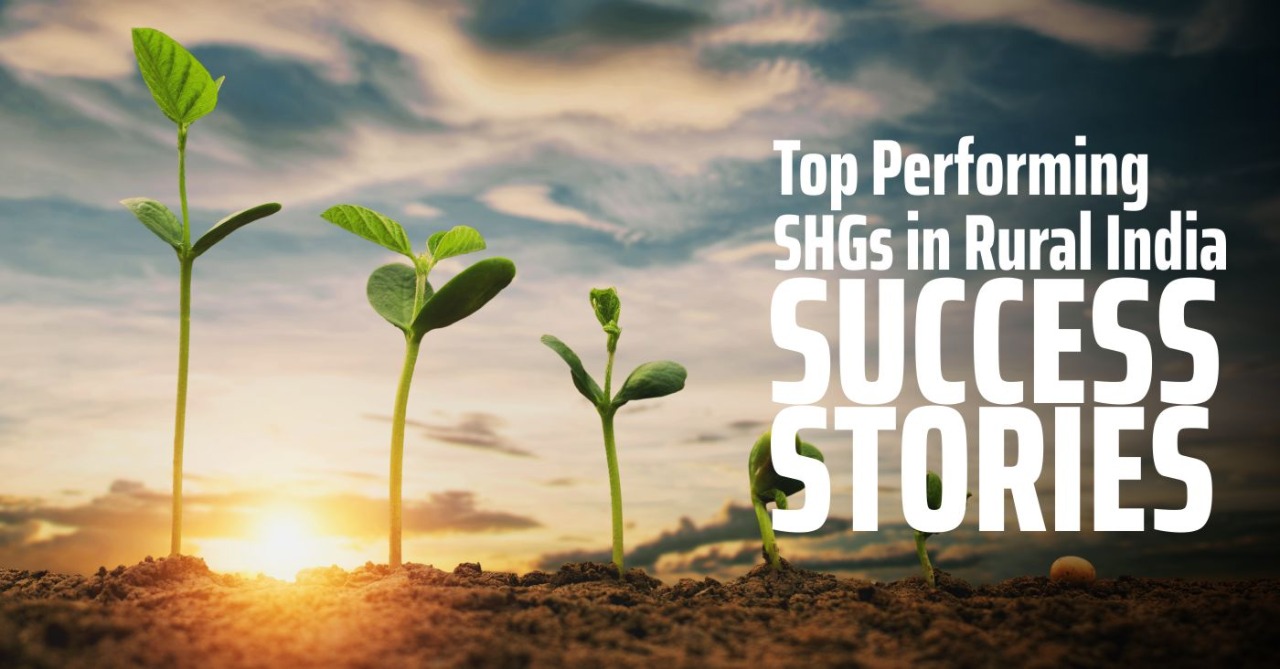



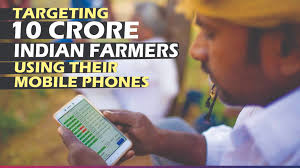
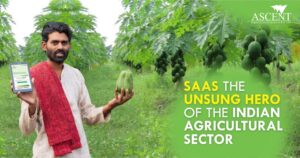
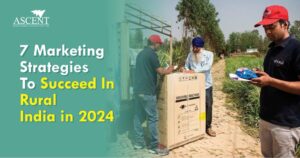


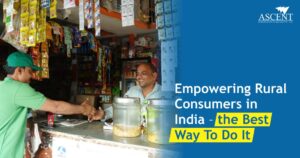

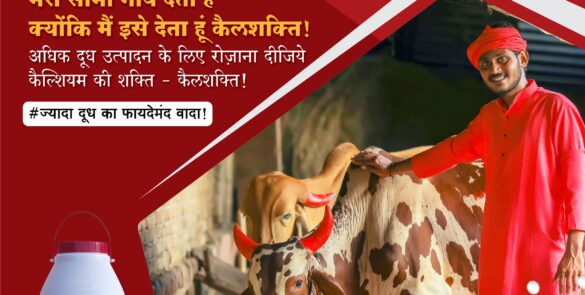
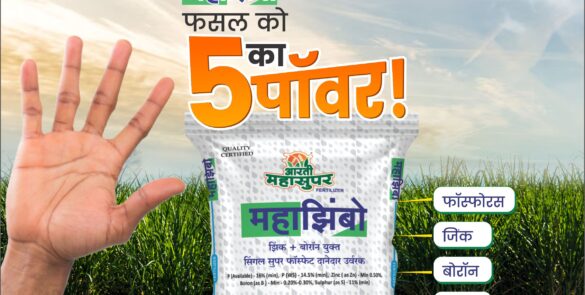
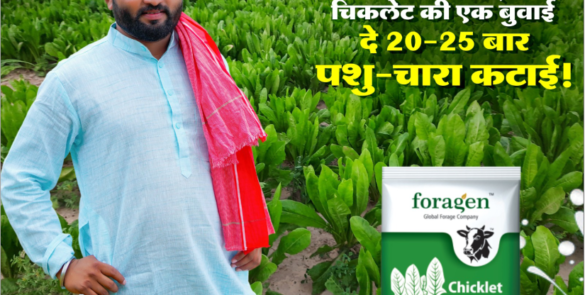
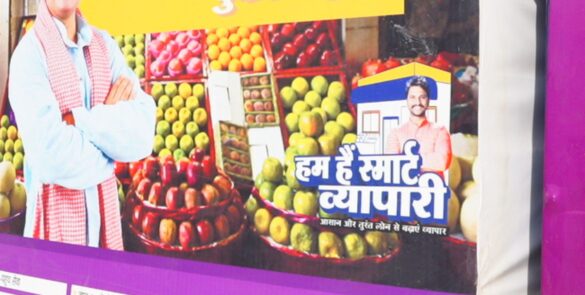


7 Responses
excellent put up, very informative. I’m wondering why the other specialists of this sector don’t realize this. You should continue your writing. I am confident, you have a great readers’ base already!
Thank you so much for your words of encouragement! It means a lot to us!
nice post. very well written. very impressive
Thanks for reading
I was able to find good info from your blog posts. aid ukraine
Thank you so much for reading our blog posts.
I’m glad to find another amazing blogger.
maggam work blouse designs